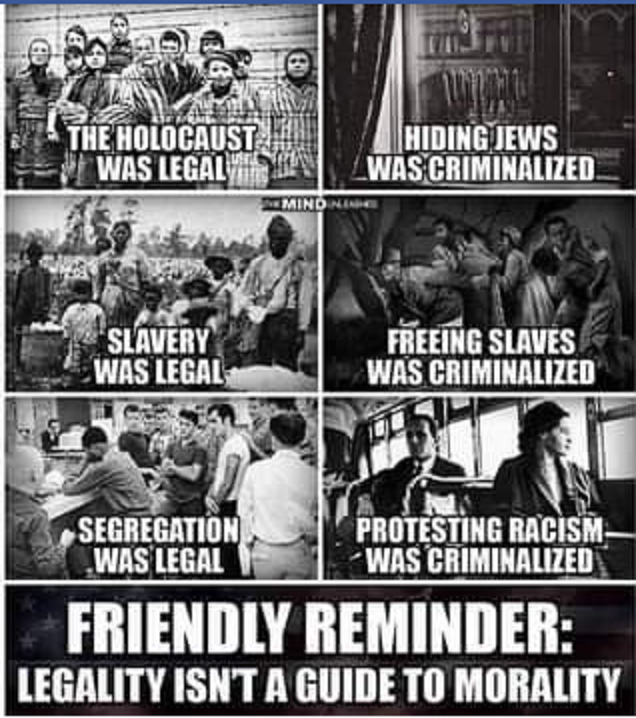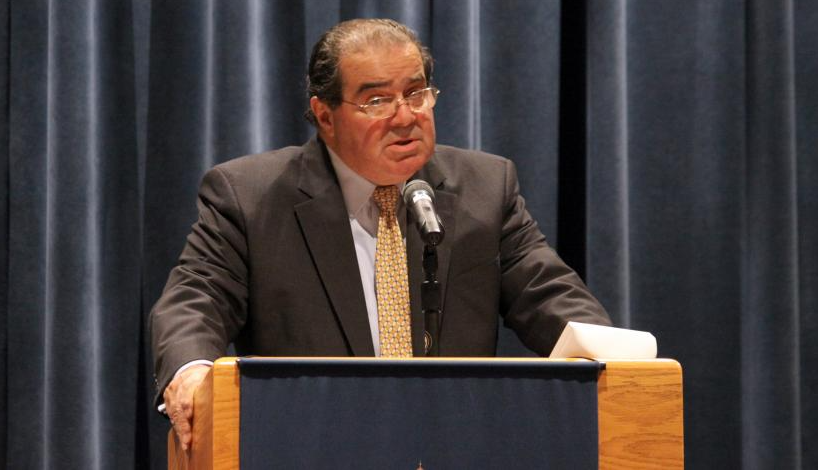There are principles beyond the literal reading of the Constitution that we strive to uphold.
Our Constitution is an imperfect document. The electoral college, in particular, was a compromise. It violates our voting rights, and is not by any stretch a realization of the best example of a Democratic Republic. If we were to hold ourselves to the idea of originalism, a Black person would be worth 3/5 of a White man and Women wouldn't have the right to vote. Thomas Jefferson himself suggested that our Constitution should have a shelf life of 19 years.
The Supreme court justices, as a separate but equal branch of government are given the power and responsibility to understand and act upon that distinction. If their only duty is to apply the existing law to the problems we face today, they can be replaced with Artificial Intelligence, which would probably do a better job anyway, and not be biased with political affiliations or predilections.
If Gore v Bush had been decided by an AI decision maker back in 2000, Gore would have been elected president. The Constitution explicitly states that it is up to the States to decide who is to be our next president. The Federal government had no jurisdiction in the matter and that 5-4 decision, divided by political allegiance, was a shameful overreach of their authority.
The Supreme Court is made up of fallible, politicized and biased human beings, which unfortunately, they've demonstrated too many times to the detriment of America.
We need to expand the size of the Supreme Court to at least 13 justices and add more wisdom to their collective judgement, something painfully lacking today, something that elevates their utility over and above what a computer can figure out. The Sanhedrin of ancient Israel, the judicial system after which our Federal court system was modeled, had 71 judges in their Supreme Court.
We need to get rid of the electoral college and admit DC and Puerto Rico as States into our union. To maintain a total of 50, we should combine the Dakotas and the Virginias into a single state.
These changes will lead America toward a more perfect union.
And to answer Mr. Scalia's decision regarding the District of Columbia v Heller, let's say the writers of the 2nd amendment were able to look forward 200 years into the future to the problems with gun violence we suffer from today. Do you think they would have worded the 2nd amendment any differently? And even if they hadn't made their meaning any clearer, what about the ideas of regulation and personal responsibility? Please show us some evidence of common sense here. Any thoughts on how your narrow interpretation of the law supersedes the carnage Americans are living with today?
And his remark about "ease of lawyerly application" leaves me cold. Your job as a Supreme Court justice is to rule wisely on the difficult questions, move progress in the right direction and not take the easy way out.
He goes on to say that "lawyers are not trained to be moral philosophers." No, maybe they aren't, but we hope our elected officials in the Executive and Legislative branches of government are men and women of good moral character. Does this not apply to our Judicial branch of government?
Later, he states, "ultimately it is the judges' call, figuring out the meaning of legal texts is judges' work." Lawyers don't have to understand the meaning or intent of legal texts?
Finally, the article quotes, "If ideological judging is the malady, the avowed application of such personal preferences will surely hasten the patient's demise, and the use of history is far closer to being the cure than being the disease."
Oh really?
 The day Scalia left the bench was a good day for America.
The day Scalia left the bench was a good day for America.
Our Constitution is an imperfect document. The electoral college, in particular, was a compromise. It violates our voting rights, and is not by any stretch a realization of the best example of a Democratic Republic. If we were to hold ourselves to the idea of originalism, a Black person would be worth 3/5 of a White man and Women wouldn't have the right to vote. Thomas Jefferson himself suggested that our Constitution should have a shelf life of 19 years.
The Supreme court justices, as a separate but equal branch of government are given the power and responsibility to understand and act upon that distinction. If their only duty is to apply the existing law to the problems we face today, they can be replaced with Artificial Intelligence, which would probably do a better job anyway, and not be biased with political affiliations or predilections.
If Gore v Bush had been decided by an AI decision maker back in 2000, Gore would have been elected president. The Constitution explicitly states that it is up to the States to decide who is to be our next president. The Federal government had no jurisdiction in the matter and that 5-4 decision, divided by political allegiance, was a shameful overreach of their authority.
The Supreme Court is made up of fallible, politicized and biased human beings, which unfortunately, they've demonstrated too many times to the detriment of America.
We need to expand the size of the Supreme Court to at least 13 justices and add more wisdom to their collective judgement, something painfully lacking today, something that elevates their utility over and above what a computer can figure out. The Sanhedrin of ancient Israel, the judicial system after which our Federal court system was modeled, had 71 judges in their Supreme Court.
We need to get rid of the electoral college and admit DC and Puerto Rico as States into our union. To maintain a total of 50, we should combine the Dakotas and the Virginias into a single state.
These changes will lead America toward a more perfect union.
And to answer Mr. Scalia's decision regarding the District of Columbia v Heller, let's say the writers of the 2nd amendment were able to look forward 200 years into the future to the problems with gun violence we suffer from today. Do you think they would have worded the 2nd amendment any differently? And even if they hadn't made their meaning any clearer, what about the ideas of regulation and personal responsibility? Please show us some evidence of common sense here. Any thoughts on how your narrow interpretation of the law supersedes the carnage Americans are living with today?
And his remark about "ease of lawyerly application" leaves me cold. Your job as a Supreme Court justice is to rule wisely on the difficult questions, move progress in the right direction and not take the easy way out.
He goes on to say that "lawyers are not trained to be moral philosophers." No, maybe they aren't, but we hope our elected officials in the Executive and Legislative branches of government are men and women of good moral character. Does this not apply to our Judicial branch of government?
Later, he states, "ultimately it is the judges' call, figuring out the meaning of legal texts is judges' work." Lawyers don't have to understand the meaning or intent of legal texts?
Finally, the article quotes, "If ideological judging is the malady, the avowed application of such personal preferences will surely hasten the patient's demise, and the use of history is far closer to being the cure than being the disease."
Oh really?

